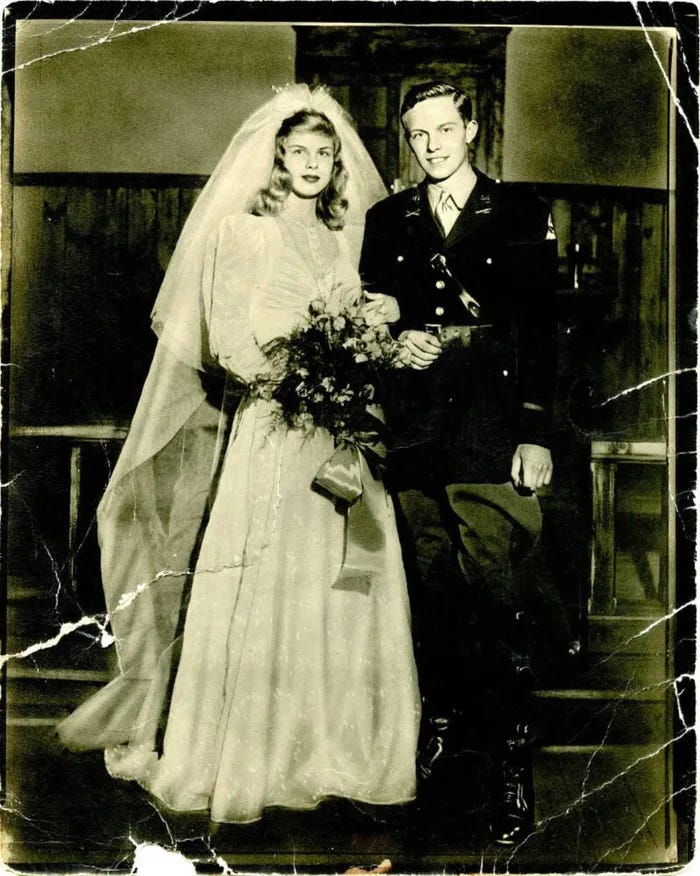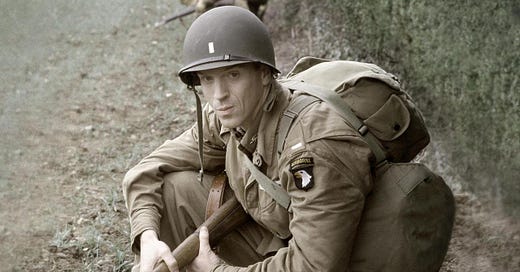Memorial Day weekend began for me with a late-night viewing of Currahee, the first episode of the HBO miniseries Band of Brothers. It always resonates, reflecting on how my father and I voluntarily underwent similar, usually demeaning military training and indoctrination to earn our commissions and aviator wings. My father enlisted in 1942 to defend the republic, in arguably our last good war. He is one of the fallen remembered today, dying in a B-47 aircraft crash in 1953.
A hometown hero by default, my father’s B-24 and B-29 Pacific War exploits from a steady stream of former crew members were staples for his young sons growing up in the 50s and 60s, when Memorial Day was special. Major Gene Marx was a hero to me, not a “fallen warrior”, despite the accolades showered on the dead and an unknown soldier at Arlington today by another sham Commander in Chief.
But memory is fragile, and valor, noted writer/composer Mark McInerney, can be distorted. “We often lionize the fallen because they can no longer speak. We drape the word hero across the dead—but sometimes we do it to silence the living.” This tactic could not have been more effective, with Congress abdicating its war powers responsibilities since Saigon’s fall and public apathy prevailing. Today, war tributes and memorials are now no more than shiny appeasements to unbloodied patriots or effective recruitment tools for endless conflicts.
Unlike my father and Easy Company, I never encountered a hero in Vietnam. While ultimate sacrifice in battle was widespread, no one fought for your or future generations’ precious liberties. We just wanted to make it home in one piece, a goal missed by more than a million service members since the founding of this war state.
The fragile thread connecting memory and meaning has been further frayed by the dissonance between honoring sacrifice and questioning its purpose. Memorial Day, once a solemn occasion steeped in reflection and collective gratitude, now often struggles to transcend superficial gestures. Its impact has waned since I was a boy dreaming of following in my father’s footsteps. Countless wreaths have been laid with meticulous care, but the quiet dignity of remembrance is increasingly overshadowed by a lack of introspection about the cost of war and the value of peace, and more.
McInerney might have said it best in a recent post:
Spend time with a combat veteran—someone who made it through the fire. Most won’t speak in myths. They’ll talk about absurdity. About confusion. About loss. About the impossible calculus of war. They’ll tell you what it means to carry the memory of the fallen—not just as an idea, but as something that lives inside them. Something that doesn’t let go.
To them, Memorial Day is more than a commemoration ending on the 24th note of Taps, but a national commitment to honor the dead by avoiding at all costs the next and future wars.

Easy Company’s commanding officer Lieutenant Thomas Meehan got it half right when he remarked, “We know how to win wars. We must learn now to win peace...”






You honor me.
I stumbled across this today. Thank you for your important article and including me in your tribute. Semper Fi - Mark